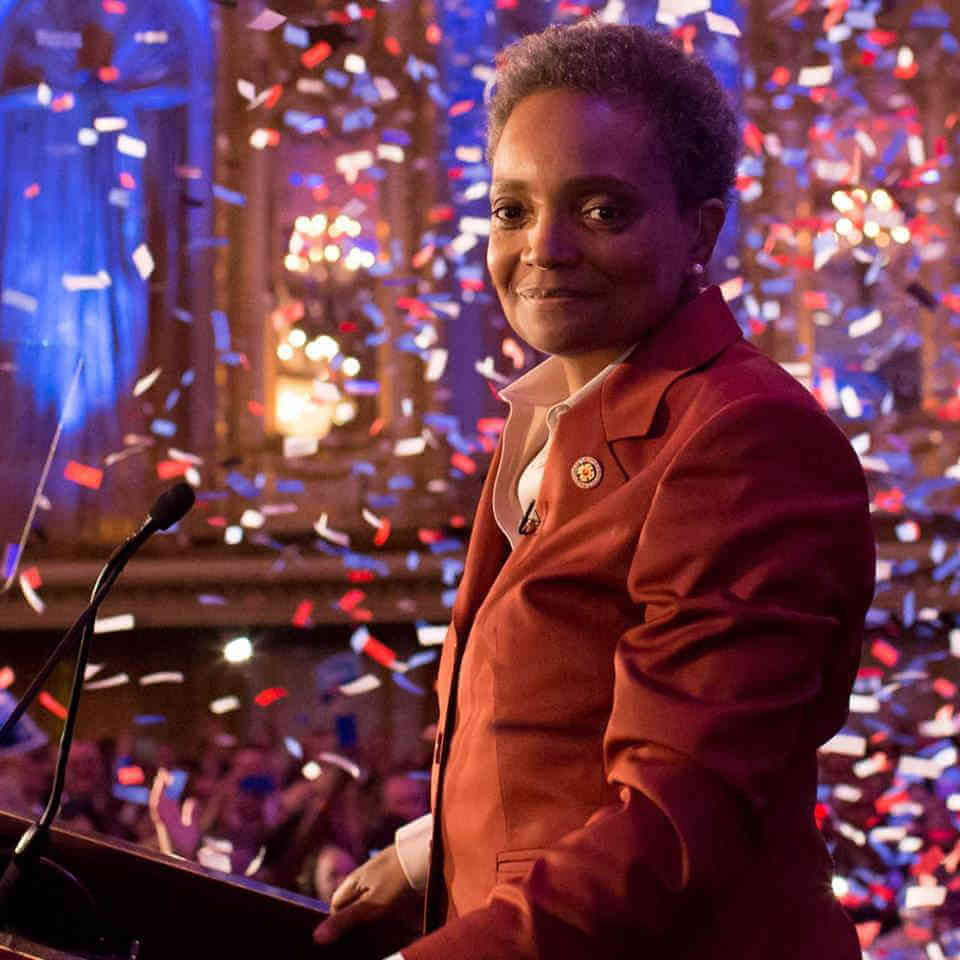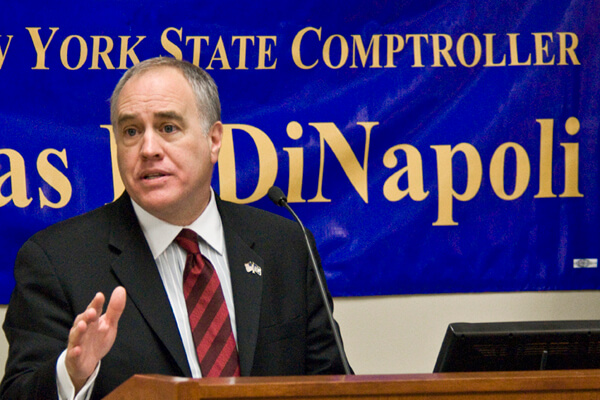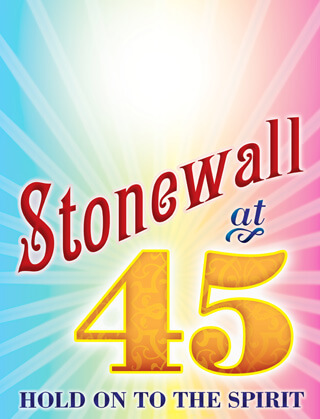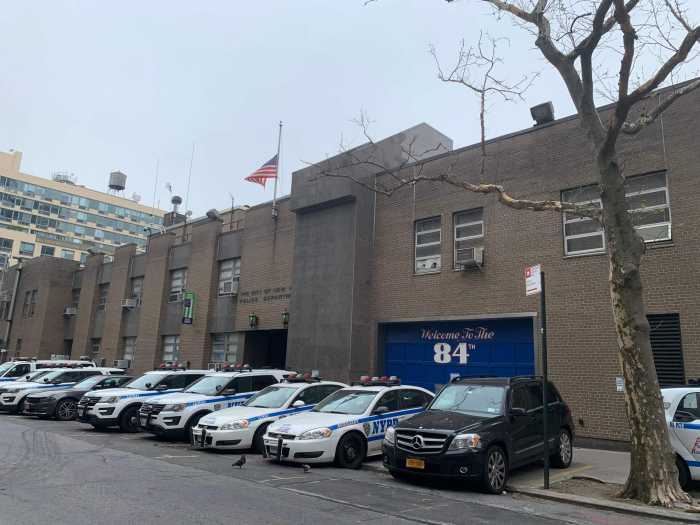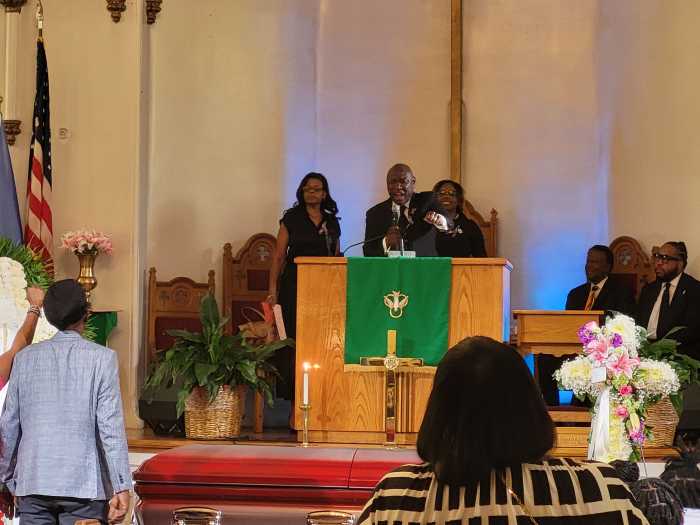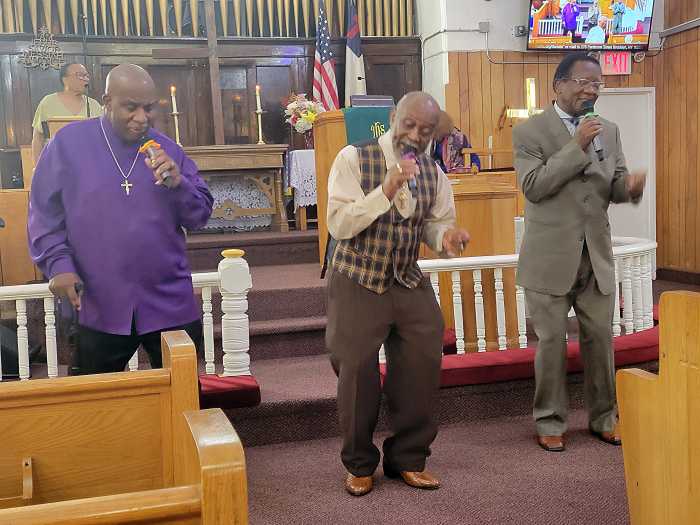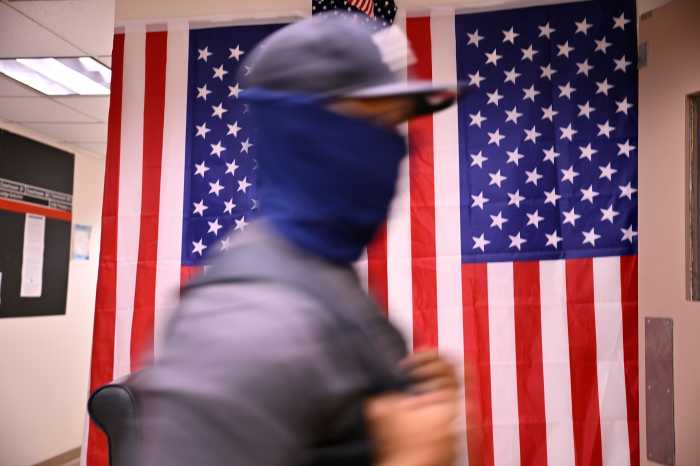Lori Lightfoot cruised to victory in the Chicago mayoral runoff election on April 2, becoming the first out lesbian black woman to lead the nation’s third largest city.
Lightfoot defeated Toni Preckwinkle in a landslide, earning nearly 74 percent of the vote compared to 26 percent, capping off a months-long trudge after a tight result in the initial election in February produced no clear-cut leader.
The decisive victory for the 56-year-old former assistant US attorney, who won every district in the city during what was her first-ever election race, came on an historic night for lesbian mayoral candidates: Out lesbian Satya Rhodes-Conway was elected mayor of Madison, Wisconsin, and out lesbian Jolie Justus nabbed the Democratic nomination for mayor in Kansas City, Missouri, where she advances to the general election in June.
Accompanied by her wife, Amy Eshleman, Lightfoot used her victory speech to highlight the historic nature of her win while painting a bright picture for the future of Chicago.
“Out there tonight a lot of little girls and boys are watching us,” Lightfoot said. “And they’re seeing the beginning of something, well, a little bit different. They’re seeing a city where it doesn’t matter what color you are, where it sure doesn’t matter how tall you are, and where it doesn’t matter who you love.”
The path to victory for the city’s first openly LGBTQ mayor didn’t come without homophobia. In the weeks before the runoff election, bogus flyers about Lightfoot were circulated around the city — particularly near black churches — saying she would “teach gay history by mandate” and would only hire gay people to serve in her administration. Questions were also raised about whether she was the victim of homophobic dog-whistle tactics from Preckwinkle, who brought up Lightfoot’s sexual orientation during a debate when she praised her for being “open and honest about her LGBTQ orientation.”
In the preliminary vote in February, Lightfoot topped a field of formidable foes in Preckwinkle, the Cook County Board president, and Bill Daley, who served as President Barack Obama’s chief of staff and whose father and brother each served long stints as mayor. In that contest, Lightfoot yielded 17.54 percent, while Preckwinkle had 16.04 percent and Daley trailed close behind with 14.78 percent of the vote.
Lightfoot is set to replace the city’s embattled mayor, Rahm Emanuel, who opted not to seek re-election after his approval rating plunged amid a series of controversies under his watch — perhaps most notably his administration’s handling of the 2014 fatal police shooting of Laquan McDonald.
In light of that and other criminal justice scandals, Lightfoot, in her campaign, vowed to revamp the Chicago Police Department as she slammed the current administration for having “no plan” to address crime in the city. Lightfoot hopes to improve the reputation of the city’s police department by building on her roles as the head of the Chicago Police Board and chair of the Chicago Police Accountability Task Force.
LGBTQ advocates viewed Lightfoot’s win as a major step forward for queer representation in politics. Equality Illinois, which advocates for LGBTQ folks throughout that state, said Lightfoot’s victory “is historic and it is also an undeniably proud moment for the LGBTQ community,” while the Human Rights Campaign’s senior vice president for policy and political affairs, JoDee Winterhof, said the organization enjoyed campaigning for her and looks forward to working closely with her administration to make sure Chicago “moves forward to be an inclusive and welcoming place for everyone.”
The LGBTQ Victory Fund, which works to help elect queer folks across all levels of government nationwide, heaped praise on Lightfoot after she won.
“A black lesbian taking power in the nation’s third-largest city is a historic moment for so many communities that are too often ignored in American politics,” said former Houston Mayor Annise Parker, an out lesbian who now heads up the Victory Fund. “Chicago’s enormous influence on the national dialogue provides a platform for Lori to promote more inclusive solutions to the challenges facing our cities and nation — and to be a credible messenger as well.”
Lightfoot will be sworn into office on May 20.

